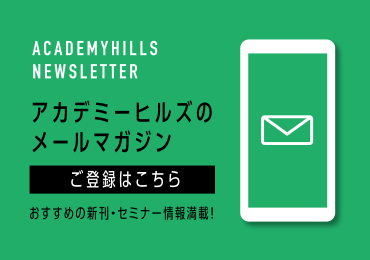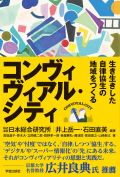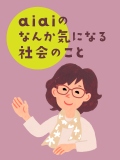六本木ヒルズライブラリー
Heated discussion of April 20
英語で語ろう友の会 2012年4月の定例会
メンバーズ・コミュニティ
更新日 : 2012年05月15日
(火)
2012年4月20日(金)19:00~21:00
Summary
10 people joined the regular meeting held on April 20. After self-introduction, we discussed several latest topics as follows:
English education in Kore
There is a shocking article about a Korean student who has been studying abroad from her childhood, leaving her parents in her home country. We discussed several issues on English education. First, why are Koreans so eager to study English compared with the Japanese? One of the reasons should be attributed to their needs to get in touch with foreign people in global market. The Korean domestic market is not big enough to make their living. Furthermore, Korean education system is rigidly test-driven and English is stressed in that system. Secondly, concerning English education in elementary school, is early study good for children? The sooner, the better? Which would it be better for school boys and girls to begin learning English, elementary school or junior high school? Elementary or middle school days are the best period for children to learn English, but on the other hand, they may sacrifice other important elements to learn. Thirdly, we discussed the change of policy from grammar to conversations that occurred in the late 1980s in Japan, and the contents of English textbook in Japan and China.
A Japanese comedian Neko’s eligibility to represent Cambodia in the marathon at the London Olympics
Would it be OK for Neko to participate in the London Olympics as a Cambodian citizen? What did you think of changing the nationality from Japan to Cambodia? One of the participants said that Neko’s representation of Cambodia is morally collapsed; another said that that can be justified as a business transaction between Neko and the Cambodian athletics federation.
Death sentence based solely on circumstantial evidence
A woman accused of killing her three lovers was sentenced to death in high-profile lay judge trial. Should concrete evidence be needed for handing down death penalty? The issue was too difficult for all the participants to construct clear arguments. The discussion turned to unintended direction. Why the woman could attract 3 men?
Driver in Kyoto crash epileptic
It is reported that the driver who plowed his minivan into an intersection crowded with pedestrians and killed 7 people had a history of epileptic. The discussion was whether the epileptic patient is a victim of such a discriminative term? Does the term have the negative connotation? What did you think of the epileptic drivers who didn’t reveal the symptom? Many participants had not noticed that the word is discriminative in society until then and agreed that the term can be used if there are no other alternative words.
The debate topic was on the University of Tokyo’s plan
The debate topic was on the University of Tokyo’s plan to change the start of the academic year from spring to fall. The aim is to align with other countries and become internationally competitive. When the university’s president made it official on January 20, he did not say that all the universities in Japan should follow Todai. But the plan was interpreted as to be assumed that that entire Japanese education system will change in line with Todai. Should the schedule be changed?
Affirmative side
1. Fall start schedule would make it easier to attract talented students from oversea.
2. That would give Japanese students more opportunities to be hired by foreign companies.
3. That would contribute to open society and enable Japanese students to make friends in cross-cultural environment.
Negative side
1. That change would not improve Japanese university’s global competitiveness. There are other reasons why the Japanese universities are internationally less competitive.
2. Not a university but the government should decide the schedule.
3. Springtime graduation is deeply connected with Japanese traditional sentiments of four seasons.
Some considerable and distinctive opinions: to encourage students to study much harder, which means changing the situations of “hard-to-enter” and “easy-to-graduate”; the importance of diversity; something dangerous of the government’s initiative, and so on. The argument of affirmative side was relatively persuasive. The participants of the affirmative side posed well organized arguments and make questions effectively.
Affirmative side
1. Fall start schedule would make it easier to attract talented students from oversea.
2. That would give Japanese students more opportunities to be hired by foreign companies.
3. That would contribute to open society and enable Japanese students to make friends in cross-cultural environment.
Negative side
1. That change would not improve Japanese university’s global competitiveness. There are other reasons why the Japanese universities are internationally less competitive.
2. Not a university but the government should decide the schedule.
3. Springtime graduation is deeply connected with Japanese traditional sentiments of four seasons.
Some considerable and distinctive opinions: to encourage students to study much harder, which means changing the situations of “hard-to-enter” and “easy-to-graduate”; the importance of diversity; something dangerous of the government’s initiative, and so on. The argument of affirmative side was relatively persuasive. The participants of the affirmative side posed well organized arguments and make questions effectively.
注目の記事
-
04月22日 (火) 更新
本から「いま」が見えてくる新刊10選 ~2025年4月~
毎日出版されるたくさんの本を眺めていると、世の中の"いま"が見えてくる。新刊書籍の中から、今知っておきたいテーマを扱った10冊の本を紹介しま....
-
04月22日 (火) 更新
aiaiのなんか気になる社会のこと
「aiaiのなんか気になる社会のこと」は、「社会課題」よりもっと手前の「ちょっと気になる社会のこと」に目を向けながら、一市民としての視点や選....
-
04月22日 (火) 更新
米大学卒業式の注目スピーチから得られる学び<イベントレポート>
ニューヨークを拠点に地政学リスク分析の分野でご活躍され、米国社会、日本社会を鋭く分析されているライターの渡邊裕子さんに、アメリカの大学の卒業....
現在募集中のイベント
-
開催日 : 05月19日 (月) 12:30~14:15
ジェラルド・カーティス氏 特別講演「これからの民主主義」
コロンビア大学政治学名誉教授のジェラルド・カーティス氏をお迎えし、トランプ政権の今後の展望と、これからの民主主義の可能性についてご講演いただ....















